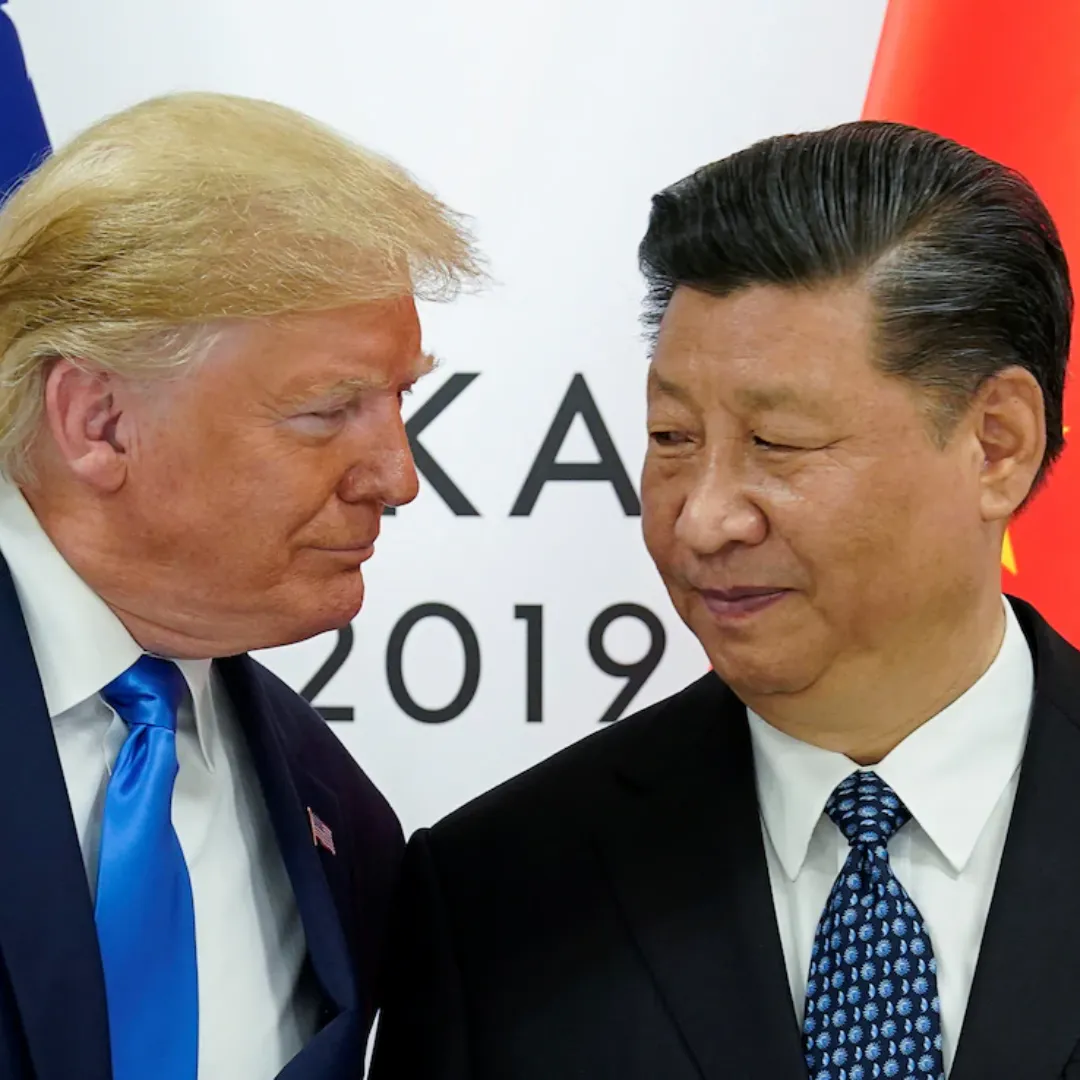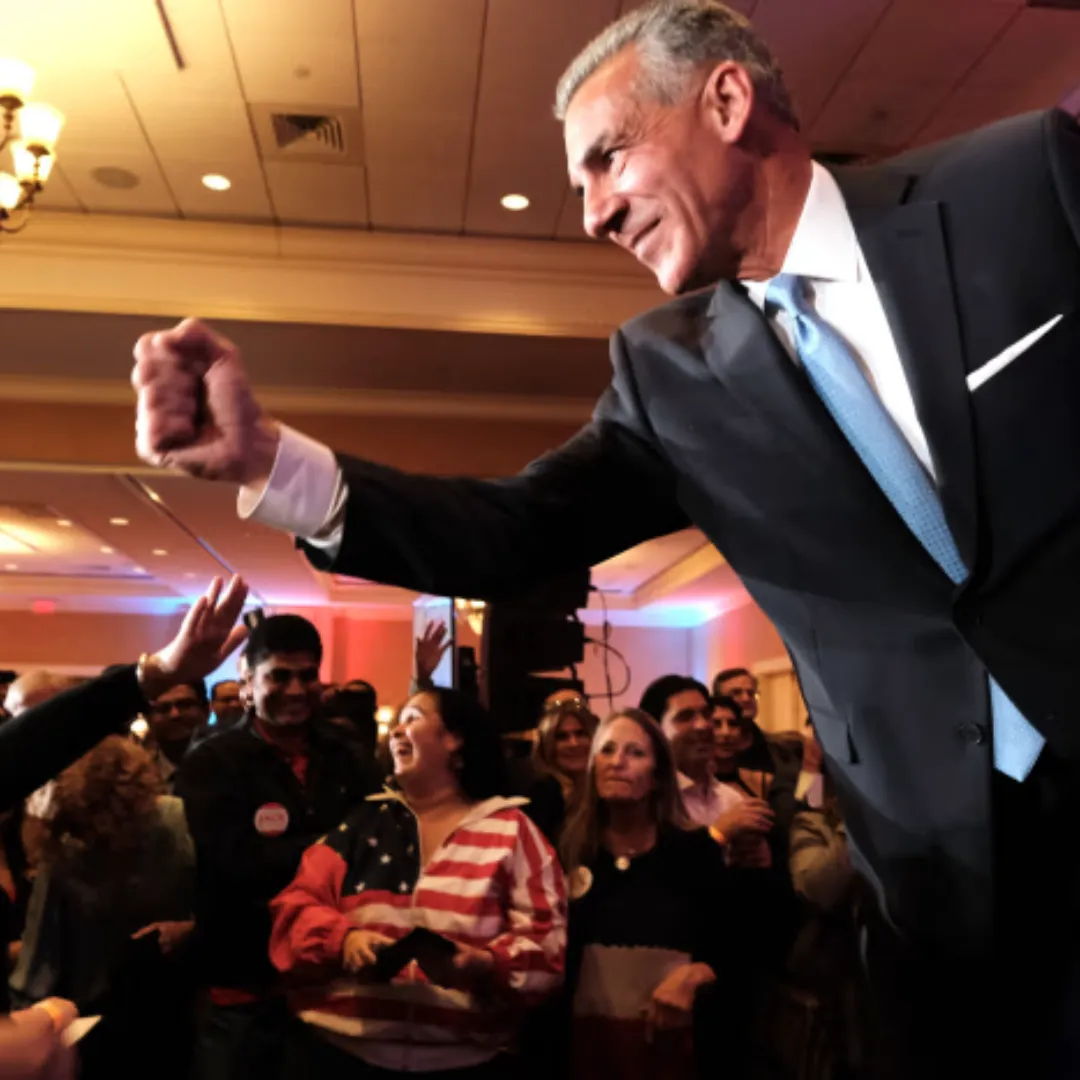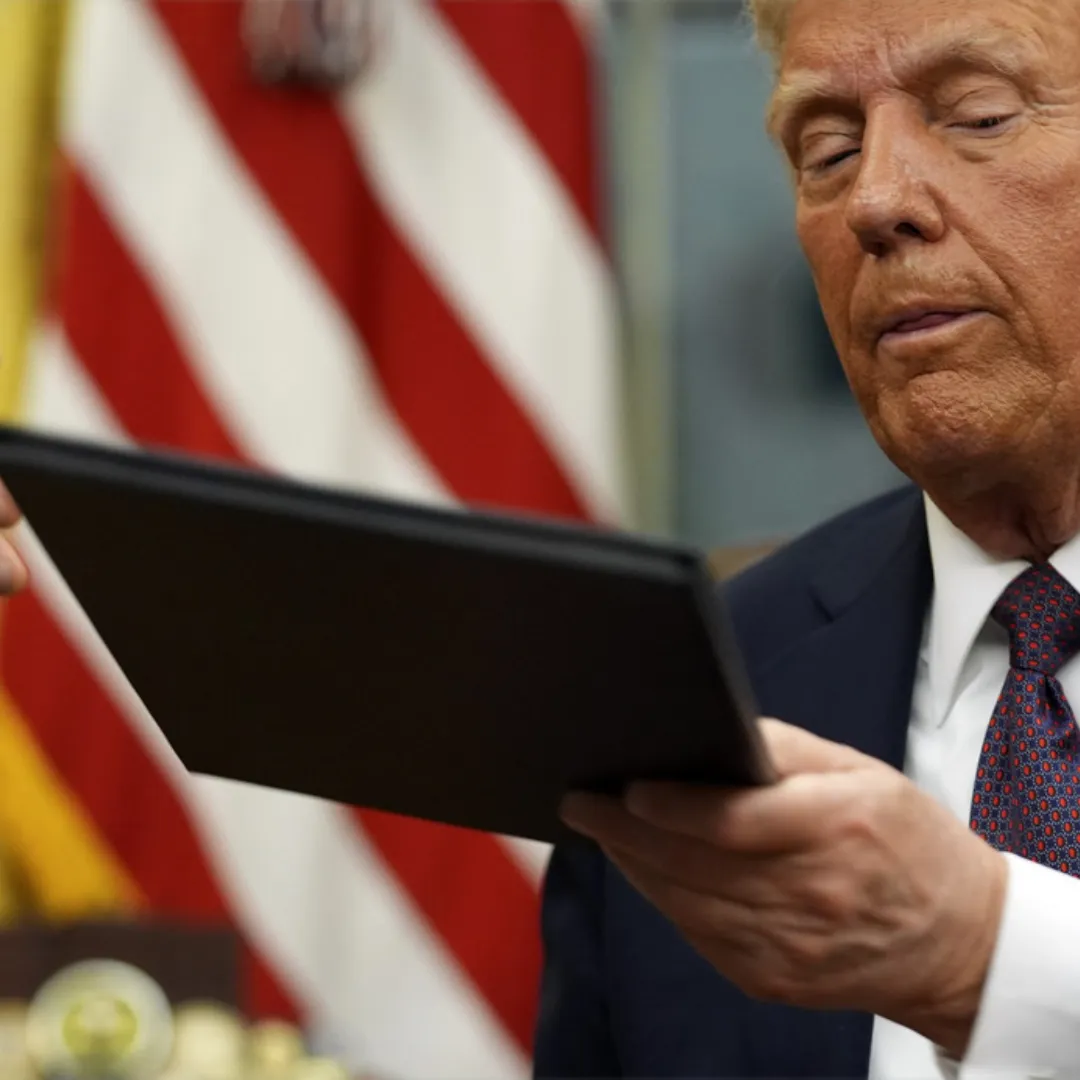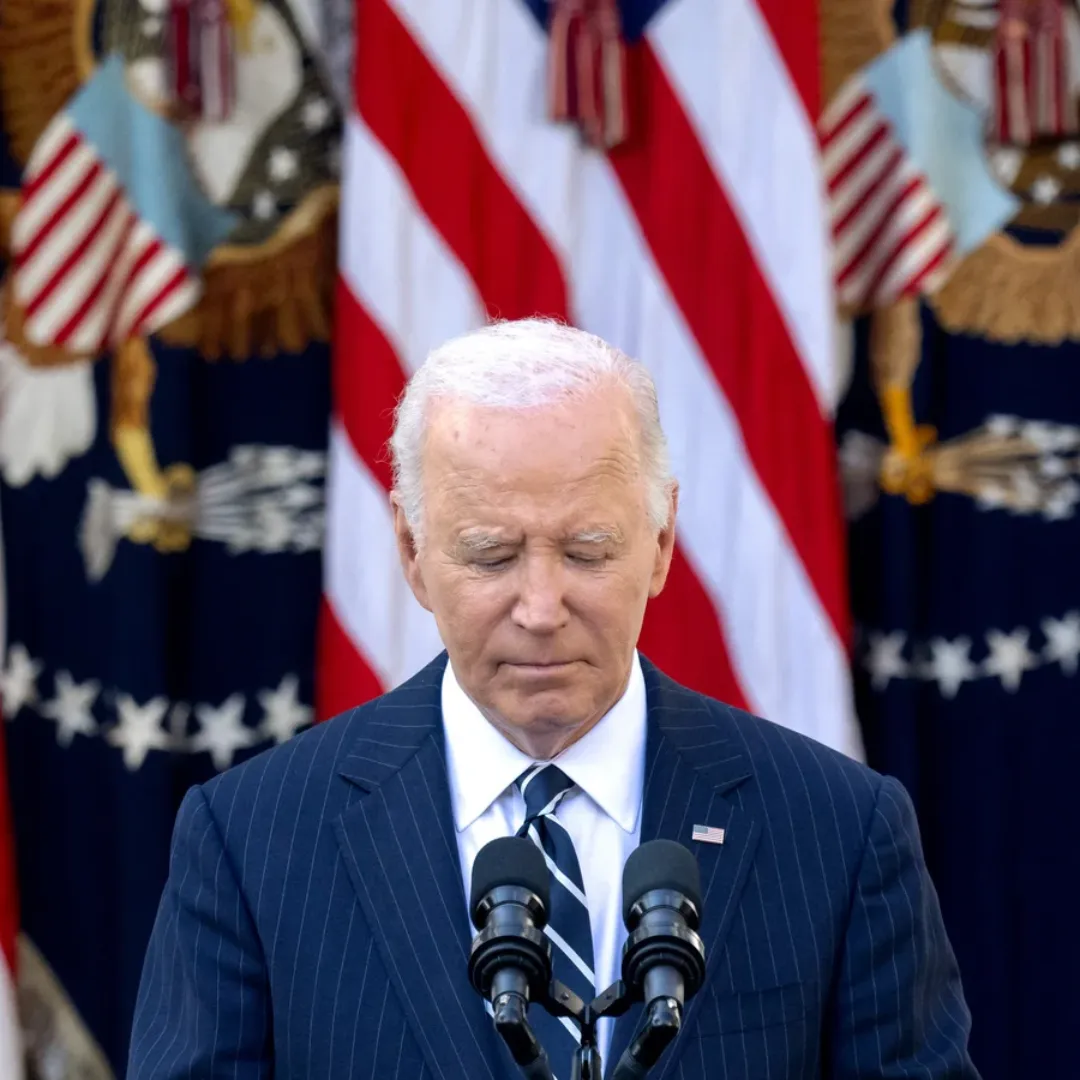President Trump expressed strong disapproval on Friday regarding the media’s growing attention on Defense Secretary Pete Hegseth’s use of the encrypted messaging app Signal to share sensitive military information.
Asked about whether his confidence in Hegseth had been shaken by the controversy, which resurfaced earlier this week, Trump dismissed the issue as "fake news," reiterating his belief that the media was exaggerating the matter.
“I don’t view Signal as important,” Trump said during his flight aboard Air Force One to Rome for Pope Francis’s funeral. “I think that’s fake news. So, I don’t view it as important.” His comments come just days after The New York Times reported that Hegseth had disclosed sensitive military information in mid-March over Signal, sharing it with his wife, brother, and personal lawyer.
According to Hegseth, the messages contained only "informal" and "unclassified" information, an argument he used to justify his earlier use of the app.
This latest controversy follows an earlier incident where a top journalist was accidentally added to a Signal chain that included senior Trump administration officials discussing planned military strikes in Yemen.
Those strikes were carried out shortly after the information was shared. Trump, however, met with the journalist, Jeffrey Goldberg of The Atlantic, earlier this week, indicating that he was well aware of the story but maintained his position that the matter was being blown out of proportion by the media.
In his usual combative style, Trump has repeatedly criticized news outlets for their focus on the Signal app incidents, which he views as overblown.
Following the first controversy, Trump took to his social media platform Truth Social to lambast the coverage, writing, "They just don’t stop — Over and over they go!" He has continued to insist that the media’s portrayal of the situation is misleading, casting it as a distraction from more important issues.
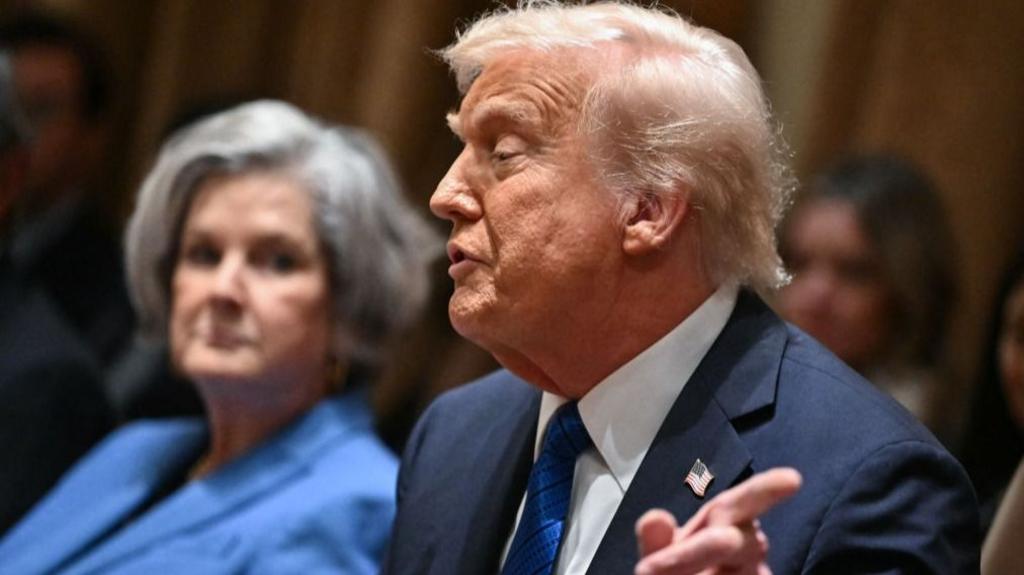
Trump and his allies have rallied behind Hegseth, fiercely rejecting calls for his resignation. In a show of support, Trump praised the Defense Secretary during the annual Easter Egg Roll event, where he reaffirmed Hegseth’s effectiveness in his role.
"He is doing a great job. … Ask the Houthis how he’s doing,” Trump remarked, referring to the Yemeni rebel group in the context of military successes attributed to Hegseth’s leadership. Trump also took aim at Pentagon officials who had been fired, implying that their dismissal was part of a necessary purge of "bad people" from the department.
“It’s just fake news,” Trump added. “They just bring up stories. I guess it sounds like disgruntled employees. You know, he was put there to get rid of a lot of bad people.”
His words underscore his ongoing defense of Hegseth, despite the leaks within the Defense Department that have led to questions about the security of sensitive military information.
Hegseth, too, has pushed back against the criticism, specifically targeting the former employees who were removed from their posts after an internal investigation into leaks within the Defense Department.
“What a big surprise that a few leakers get fired and suddenly a bunch of hit pieces come out from the same media that peddled the Russia hoax,” Hegseth said on Monday, referring to the ongoing media narrative around the alleged Russian interference in U.S. elections. The Defense Secretary’s comments indicate his frustration with the media’s focus on leaks and portrayals of the administration as riddled with internal conflicts.
While the Signal controversy continues to make waves in the media, it remains unclear whether it will have lasting political consequences for Trump or Hegseth.
The focus on the issue by both critics and supporters of the administration highlights the deeper tensions surrounding national security, military operations, and transparency. Trump’s dismissive approach to the scandal aligns with his broader strategy of attacking the media and presenting himself and his allies as victims of biased coverage.

For his part, Hegseth has been a vocal supporter of Trump’s policies, particularly in terms of military strategy and foreign policy. His close relationship with the president has been well-documented, and his role as Defense Secretary has seen him at the forefront of implementing the administration’s military objectives.
However, his actions regarding the Signal app and the subsequent media fallout raise questions about the level of oversight and accountability within the Trump administration, especially when it comes to the handling of sensitive information.
The Signal controversies also bring to light broader concerns about the use of encrypted communication apps by government officials. Critics argue that such apps, while offering privacy and security, can also provide a platform for bypassing official channels and circumventing transparency.
The incidents involving Hegseth are not the first to highlight potential issues with the use of secure messaging tools, particularly in the context of national security and government operations.
As the administration continues to grapple with these issues, the public’s perception of Trump’s leadership and Hegseth’s role in the administration will likely be shaped by the ongoing media coverage of the Signal controversies.
For now, Trump appears content to dismiss the issue as a manufactured scandal, while Hegseth’s defenders argue that the real problem lies with the media’s focus on trivial matters rather than on the administration’s successes.
In the broader political landscape, this issue adds to the growing list of challenges facing the Trump administration as it enters its second term. The president’s combative stance toward the media, his handling of national security matters, and his controversial decisions on military strategy continue to fuel debates about his fitness for office and his approach to governance.
Whether the Signal incident will ultimately have a lasting impact on Trump’s presidency remains to be seen, but it is clear that the issue has sparked intense scrutiny and criticism from both political opponents and allies alike.

As the Trump administration moves forward, the question of transparency and accountability in government operations will continue to be a critical issue. The media’s ongoing coverage of the Signal app controversy, combined with the broader political fallout, ensures that this will remain a topic of discussion in the months to come.
For now, Trump’s dismissive stance and Hegseth’s defiant defense signal that the battle over this issue is far from over.

